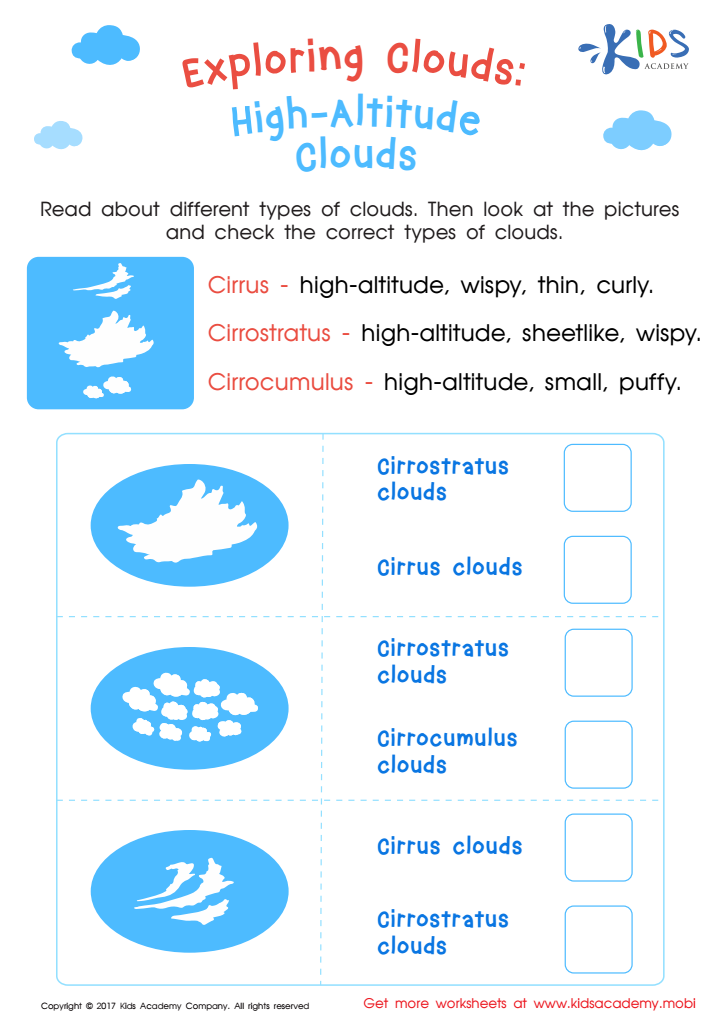Understanding cloud formation Worksheets for Kids
1 filtered results
-
From - To


Exploring Clouds: High Altitude Clouds Worksheet
Question/Answer
How to train the Understanding cloud formation skill in Grade 1 students learning about Our Planet and Environment?
To train Grade 1 students in understanding cloud formation, use simple, interactive experiments like the "Glass Jar Cloud Formation" activity. Fill a glass jar with warm water, cover it with a plate, and place ice cubes on top. Explain how the warm air from the water rises, cools, and forms condensation, mimicking cloud formation.
How to test a Grade 1 student’s Understanding cloud formation skills?
To test a Grade 1 student's understanding of cloud formation, engage them in a simple, interactive experiment. Use a clear jar filled with warm water, a plate as a cover, and ice placed on top. Ask them to predict what will happen and then discuss the condensation forming clouds.
How does the mastery of the Understanding cloud formation skill affect a student's performance at an early age?
Mastery of the Understanding cloud formation skill at an early age enhances a student's comprehension of basic meteorological concepts, encouraging scientific curiosity and critical thinking. This foundational knowledge fosters an appreciation for environmental science, improves academic performance in related subjects, and can stimulate an interest in pursuing studies and careers in science, technology, engineering, and math (STEM) fields.
 Assign to My Students
Assign to My Students















